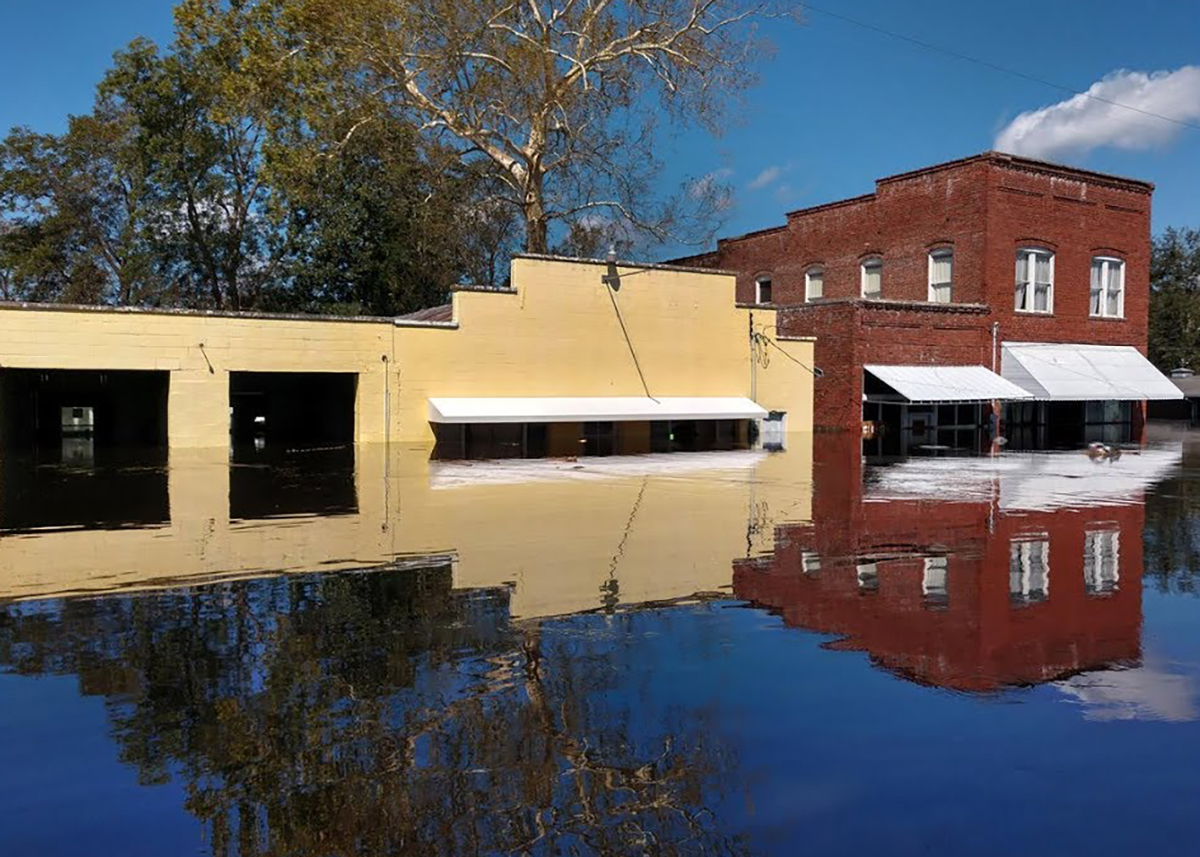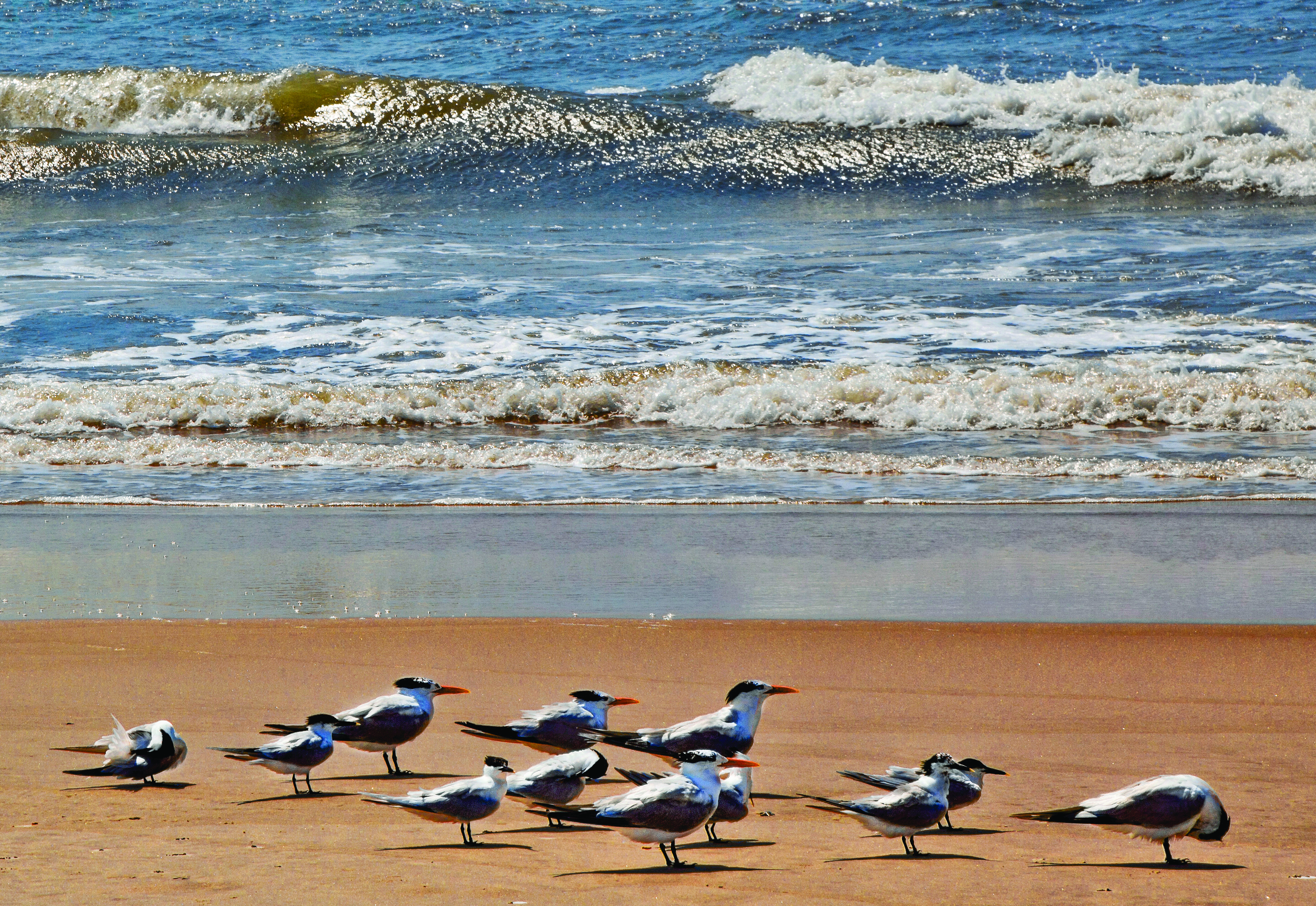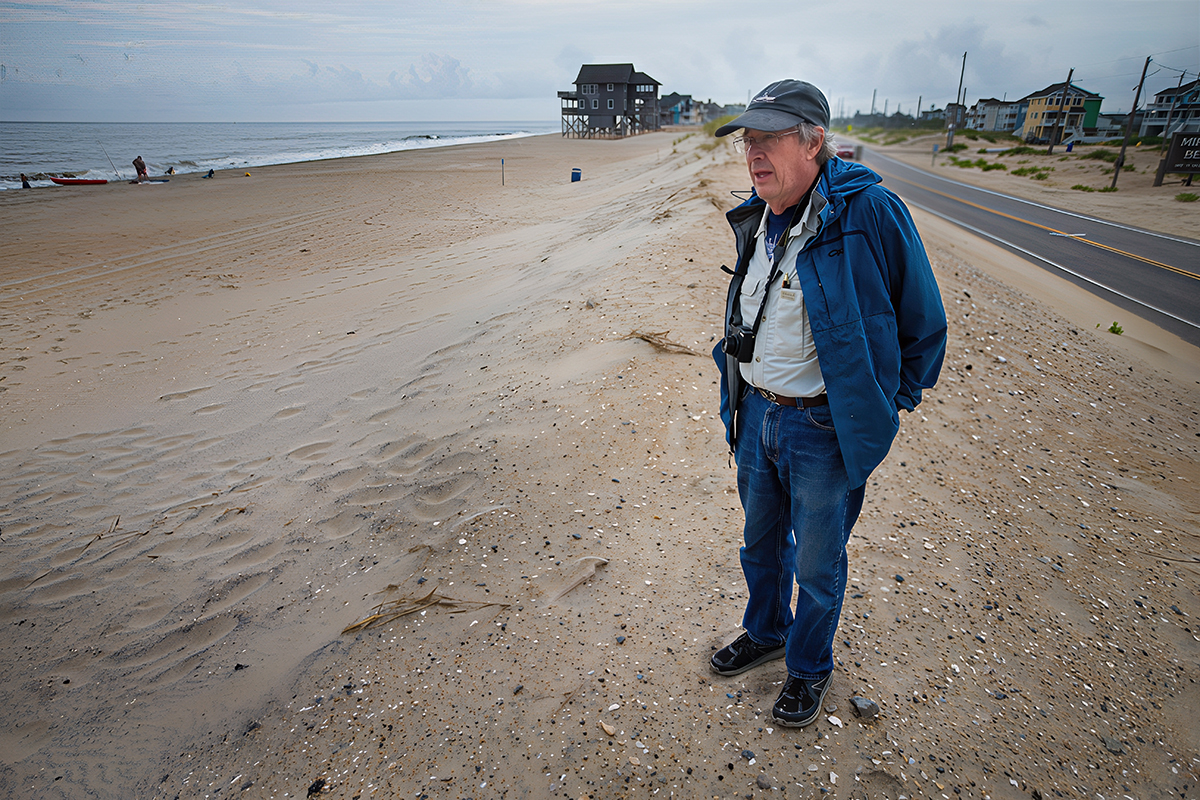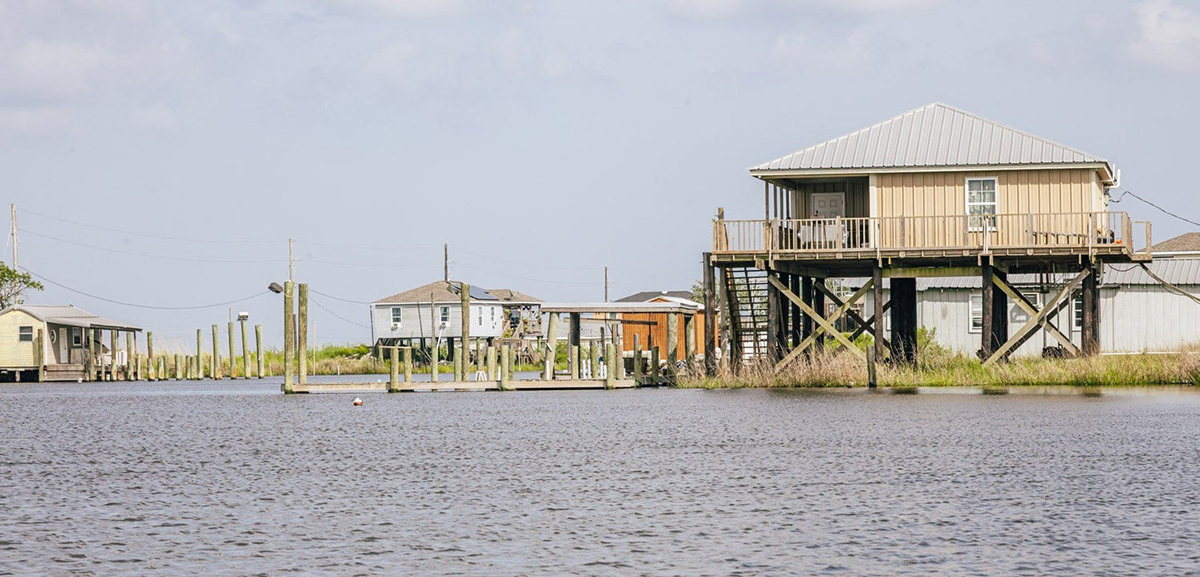This is the sixth installment in a continuing series on climate change and the North Carolina coast that is part of the Pulitzer Center’s nationwide Connected Coastlines reporting initiative.
RALEIGH — It was not the kind of Earth Day that North Carolina State Climatologist Kathie Dello had imagined.
Supporter Spotlight
On April 20, Dello opened a weeklong series of events at the North Carolina Museum of Natural Sciences, but instead of an in-person talk with the giant Earth at the museum’s entrance as a fitting backdrop, she joined via teleconference from her Raleigh home.
For the better part of an hour, Dello, on the job since last July, led a virtual walk-through of the findings in the state’s new climate report, an extensive, first-ever compilation of the science, impacts and unknowns about climate change in the state.
The major takeaways from the 236-page report are familiar: a warmer, wetter North Carolina with coastal areas threatened by rising seas and more frequent heavy downpours, along with increased flooding in all parts of the state.
Dello’s job that day and every day is to put that kind of data into context.
“North Carolina is warming and we’re expecting warming unlike anything we’ve seen in our past,” she explained to museum viewers.
Supporter Spotlight
Dello is the state’s fifth climatologist and the first woman to lead the State Climate Office, based at North Carolina State University. Before taking the job, she served as the associate director of the Oregon Climate Change Research Institute and the deputy director of the Oregon Climate Service.
In her talk illustrating the details in the new report, Dello pointed to effects seen around the state, breaking down the impact of warmer nights on public health and agriculture and how more intense rain events spell more frequent urban flooding. Stone fruits, like peaches, and other crops won’t do well without cool nights, she explained. Farmworkers and other outdoor laborers will experience more heat stress during the day, while warmer nights mean no chance to cool down.
It’s important, she said, to recognize that climate change is in our present as well as our future and has to be addressed accordingly.
“We’re feeling climate change now so, we don’t get to the luxury of talking about this as a future problem anymore,” she said. “It’s here in North Carolina. It’s here in our backyard and we’re seeing it through the sea level rise and extreme downpours.”
In getting to know the state, Dello said she’s been struck with its diversity, in ecological terms and the human communities within its borders.
For Dello a big part of the job of state climatologist is communicating science in a meaningful way, bringing home to people what a changing climate means. She helped author a “plain language” summary of the North Carolina Climate Science Report, which is aimed at making the science more accessible and useful for the public as well as planners and policy makers.
Creating the complex climate models, the math, is the easy part, she told viewers on Earth Day.
“I’m not being flip, that really is the easy part. The most difficult part is the human component, us, how we’re going to behave, how we’re going to react.”
In plain language
In climate science circles, North Carolina is known both for the intensity of storms and the debate here over climate science. Dello said that when she got here, only one was apparent.
“When I got the job, people were shocked that I would leave the West Coast, which seems to be a friendlier place to talk about climate,” she said in an interview with Coastal Review Online. “But I found the opposite here.”
Dello said she saw much more resistance and organized opposition in Oregon.
“I don’t know if it’s just Southern hospitality or that people are a little bit nicer, but I find that people are ready and willing to talk about climate change here,” she said. “In some cases, they haven’t been engaged at all and are grateful that someone is willing to approach the subject with them.”
Recent storms here likely played a role in that, she said. “I’m finding that folks are open and willing to have the conversation and certainly the weather and the climate over the past few years has probably helped that out.”
“I don’t know if it’s just Southern hospitality or that people are a little bit nicer, but I find that people are ready and willing to talk about climate change here.”
To understand what the future of our climate holds, Dello said it’s important to recognize that we are already seeing what climate change looks like.
“We’re in for more of it. We’re in for worse,” she said. “It’s hotter, it’s wetter, the ocean communities are dealing with sunny-day, nuisance flooding and coastal erosion.”
“Flooding is going to impact the entire state,” Dello said. There’ll be more frequent heavy rain events and more large-scale urban floods, especially when there’s a combination of events, such as a big storm after leaves have just fallen.
“The mechanism might be different — it’s not going to be high tide in Raleigh — but it may be something else.”
What that means for hurricanes is unclear, in terms of where the storms might travel, she said, but wherever they go, more intense wind and rain and more damage are likely.
“We don’t necessarily know where hurricanes make landfall. Climate models don’t reconcile that very well but we’re stacking the deck with more conducive conditions for dangerous hurricanes.”
That outlook is daunting for policy makers, and Dello said the state will have to confront repeated devastation to vulnerable communities and the disparate impact on people who work outside or can’t afford to cool their homes when heat indexes rise.
“I think this is going to take a really close look at some of our inequities across our state,” she said. “The communities that going to be hit the hardest, that have been hit the hardest are just going to keep getting hit. I think we have some tough questions to ask of ourselves.”
She said the coronavirus pandemic is reminder that it is pointless to talk about a “new normal” as if there will be a point where things plateau.
“We talk about a new normal and we were talking about a new normal before all this other stuff started happening,” she said. “But that’s not a great classification, because we’ll check in at a new normal and then there’ll be another new normal and another new normal.”
NC’s opportunity to lead
The new state climate report and its focus on the impact of climate change is one part of a state resilience and mitigation strategy put in place by Gov. Roy Cooper. The climate change report is integral to the next step in the process, a statewide resiliency plan that is due out this month.
“I think North Carolina has a really unique advantage in that we are seeing climate change loud and clear here in this state and we’re recognizing that we need to do something about it.”
Cooper’s strategy represents a considerable shift from his predecessor, Gov. Pat McCrory, who advocated for offshore drilling and inland fracking. But Cooper has been limited mostly to executive action. Following the recent series of devastating storms, the state’s legislature has been willing to back resiliency efforts, but as yet is still unwilling to enact major policy changes, such as carbon reduction goals.
Dello said that often the resistance to changes at the state level is based on the contention that it won’t make a difference.
“What people who don’t want to take action on climate use as an argument is that one individual state can’t do enough on its own. I don’t think the point is that North Carolina is trying to do this on its own. North Carolina is saying, ‘Hey, we contribute to this problem,’” she said. “Sure it’s global, but recognizing our contribution to it and knowing that the atmosphere doesn’t stop at our borders, we’re going to look closely at what we can do.”
Given its reputation, she said, North Carolina has an opportunity to show other states a way forward.
“We’ve seen with policy change in the past in the U.S., it’s the states that make the federal government act,” Dello said. In environmental policy usually those state changes come from places like California and New York.
“I think North Carolina has a really unique advantage in that we are seeing climate change loud and clear here in this state and we’re recognizing that we need to do something about it. The politics may have changed a little bit, but folks don’t see us as the most progressive state around the country. I think that North Carolina can be a leader in showing other states you can do this.”
Lessons from lockdown
“I think one of the things I keep reminding myself is that climate change isn’t stopping because of any of this,” Dello said. “This break in emissions isn’t doing very much for us.”
Still, the early reaction to the coronavirus pandemic in which most people were willing to pitch in and take the stay-at-home order seriously gives her some hope that people are willing to adapt for a common cause.
“I’m seeing folk ask questions of themselves — I’m doing it too — Why do I travel so much? Why do I go to conferences all over when really I could have them online?”
Some of those changes will carry forward, she said, but they’re only a small part of what’s needed and there’s the worry that once things return to some sense of normalcy the collective spirit will fade.
“The problem we have on our hands is really, really big, and watching people struggle with this one, I don’t know” Dello said. “I bounce back and forth between optimism and pessimism.”








